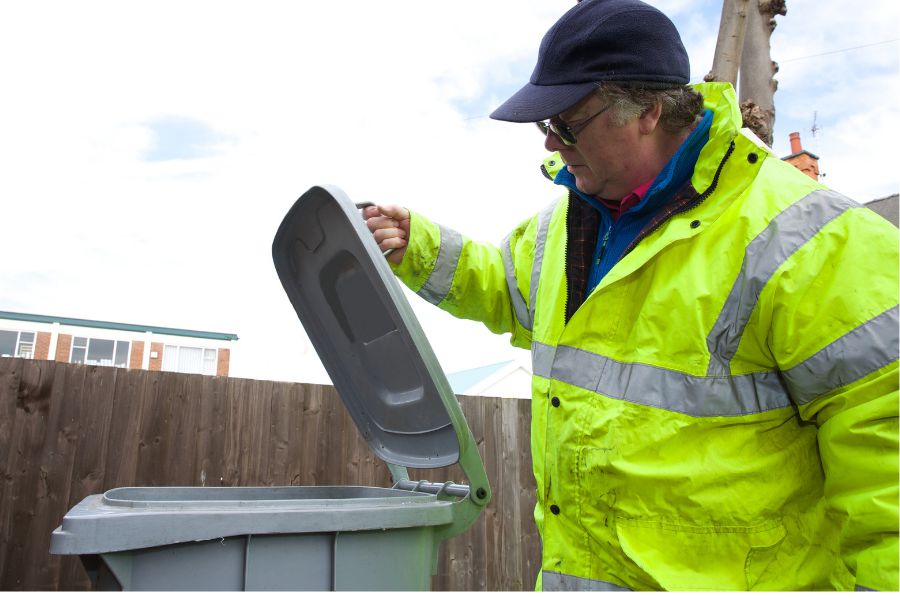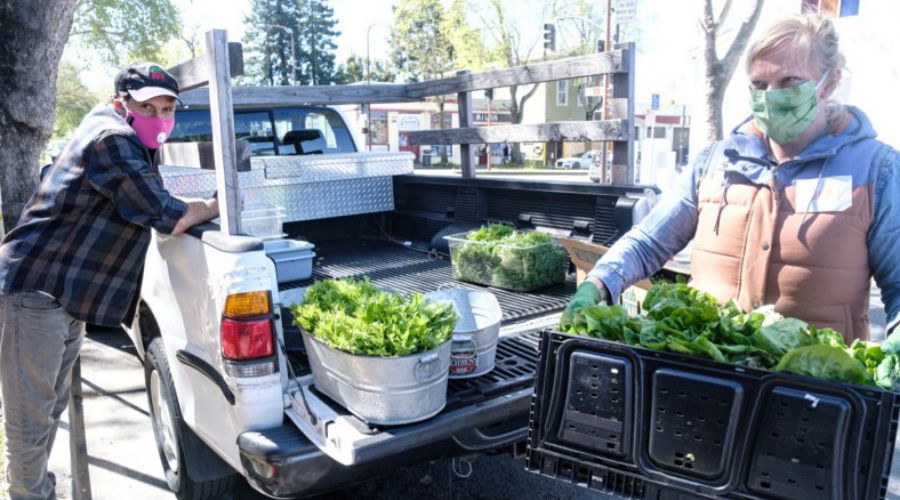
SB 1383 requires jurisdictions to implement an inspection and enforcement program to ensure organic waste generators, haulers, and other entities comply with the requirements of the law.
The law requires jurisdictions to develop the following elements:
Ordinances (Here are my second edits)
Here’s another edit and another edit. The development and adoption of ordinances that include inspection and enforcement programs are required. CalRecycle has developed the following resources to assist jurisdictions and stakeholders with implementation of the inspection and enforcement program.
Model ordinances for:

Implementation Record
Jurisdictions are required to compile documentation about their efforts to implement SB 1383 in the form of an implementation record. A complete and up-to-date implementation record will document the oversight and enforcement efforts taken to implement the law. The implementation record will also support the development and submission of a complete and accurate annual report.
Refer to the full list of information required in the implementation record.
CalRecycle Review of Implementation Record
CalRecycle will review implementation records. Site visits will be used and, no less than 10 days before a site visit, CalRecycle will provide the jurisdiction notice that a review will be conducted. CalRecycle will evaluate the completeness of the implementation record to verify compliance with the regulations.
As part of this review, CalRecycle will verify that, at a minimum, the implementation record is:
- Maintained in one central location, in a physical or electronic format.
- Updated with all records and information within 60 days of creation.
- Retains the most current five years of documentation.

Inspections
Beginning January 1, 2022, jurisdictions must conduct annual inspections to ensure regulated entities are complying with SB 1383’s requirements.
The inspections include:
- A compliance review to verify that commercial businesses (generating 2 cubic yards or more of garbage, including organic waste) either:
- Subscribe to and comply with the jurisdiction’s organic waste collection service; or
- Self-haul organic waste and comply with hauler requirements.
- Annual route reviews to verify organic waste generators either:
- Comply with local requirements of the organic waste collection service, or
- Self-haul their waste and monitoring collection cans for container contamination
- Performing waste evaluations on sampled organic waste at a permitted solid waste facility to evaluate the amount of container contamination.
- Verifying tier one commercial edible food generators (like supermarkets, grocery stores, and food distributors) are recovering a maximum amount of edible food.
- Verifying commercial businesses issued waivers for organic waste collection are maintaining total generation below the required threshold or lack the adequate space for a multi-bin collection service. (This review is to be conducted a minimum of every five years.)
Beginning January 1, 2024, in addition to the above, jurisdictions are required to conduct annual inspections of:
- Tier two commercial edible food generators (like large restaurants, hotels, large venues and events, state, or local agencies with food services) to verify they are recovering the maximum amount of edible food.

Investigations
Beginning January 1, 2022, a jurisdiction will need a process to receive and investigate complaints of alleged violations of SB 1383.
The process needs to:
- Provide for receiving written complaints, including complaints submitted anonymously.
- Ensure that the investigation of a complaint begins within 90 days.
- Provide the complainant, if known, the results of the investigation.
- Ensure all records of the complaints and subsequent investigations are maintained in the implementation record.

Enforcement
If a jurisdiction finds a regulated organic waste generator or commercial edible food generator is in violation of SB 1383, it shall take the following action against the generator.
Beginning January 1, 2022, a jurisdiction shall:
- Provide education material describing the requirements including, but not limited to:
- Properly separating organic material
- Reducing and preventing organic waste
- Information on food recovery organizations that accept donated food, etc.
- Maintain all information such as flyers, brochures, newsletters, etc. in the implementation record.
Beginning January 1, 2024, a jurisdiction shall:
- Take enforcement action by issuing a notice of violation requiring compliance within 60 days.
- For prohibited container contamination violations, provide the required notice.
- Issue penalties pursuant to the jurisdiction’s adopted SB 1383 ordinance when violations are not corrected.
Test
